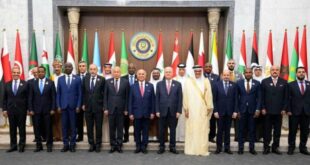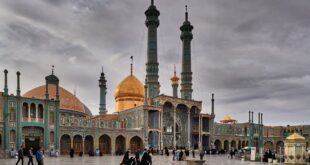 TEHRAN (FNA) The economic impact of US sanctions against Iran over its nuclear program is unclear and Iran has signed about $20 billion in energy contracts with foreign firms since 2003, said a US audit report.
TEHRAN (FNA) The economic impact of US sanctions against Iran over its nuclear program is unclear and Iran has signed about $20 billion in energy contracts with foreign firms since 2003, said a US audit report.
“US officials and experts report that US sanctions have specific impacts on Iran; however, the extent of such impacts is difficult to determine,” said the report by the nonpartisan Government Accountability Office, which was obtained by Reuters on Tuesday before its release later this week.
“Other evidence raises questions about the extent of reported economic impacts,” it added.
The report by the investigative arm of Congress comes at a sensitive time for the Bush administration as it is pushing for a third round of UN Security Council sanctions against Iran for its refusal to give up uranium enrichment, a right envisaged in the Non-Proliferation Treaty (NPT).
According to the NPT, Iran is as a signatory entitled to pursue civilian nuclear technology, including uranium enrichment.
Foreign ministers from the permanent members of the UN Security Council as well as Germany are expected to meet in Berlin next Tuesday to iron out differences over new sanctions with most objections coming from Russia and China.
Tehran has so far rejected this demand.
Iran is under two sets of UN Security Council sanctions for its refusal to freeze uranium enrichment even after the peaceful nature of its nuclear programs and activities was proved.
Washington is pushing for additional UN penalties despite a recent report by 16 US intelligence bodies that endorsed the civilian nature of Iran’s programs. Following the US National Intelligence Estimate (NIE) and a similar report by the IAEA head in November which praised Iran’s truthfulness about key aspects of its past nuclear activities, Russia and China increased resistance to any further punitive measures by the Security Council.
Tehran says it never worked on atomic weapons and wants to enrich uranium only to produce fuel for reactors that would generate electricity, a claim substantiated by the NIE and IAEA reports.
Not only many Iranian officials, including President Mahmoud Ahmadinejad, but also many other world nations have called the UN Security Council pressure unjustified, especially in the wake of recent IAEA reports saying Iran had increased cooperation with the agency.
Bush has pressed for tough measures against Iran during a trip to the Middle East over the past week, trying to isolate Tehran and telling Arab states Iran’s nuclear program is a major threat to world peace.
But Bush’s attempt to rally international pressure against Iran’s nuclear program has lost steam due by the US intelligence report.
The GAO urged Bush’s national security council to do a “baseline assessment” of sanctions against Iran and to report those results to the US Congress.
But since 2003, the Iranian government had signed contracts worth about $20 billion with foreign firms to develop its energy resources, said the report.
It also said strict US sanctions on state-owned Iranian banks could be circumvented if those banks turned to other financial institutions or funded their activities in other currencies than the US dollar.
“Iran’s global trade ties and leading role in energy production make it difficult for the United States to isolate Iran and pressure it…” the report said.
Increased oil demand, high oil prices and Iran’s huge reserves, helped Iran get more than $50 billion in oil revenues in 2006, the report said.
From 1987 through 2006, Iran’s exports grew from $8.5 billion to $70 billion, while Iran’s imports grew from $7 billion to $46 billion, it added.
Connecticut Rep. Christopher Shays, a Republican who requested the GAO report, said a system was needed to measure the effectiveness of sanctions on Iran, adding he was pushing for congressional hearings on the issue and would soon introduce legislation implementing the GAO recommendations.
 Eurasia Press & News
Eurasia Press & News



